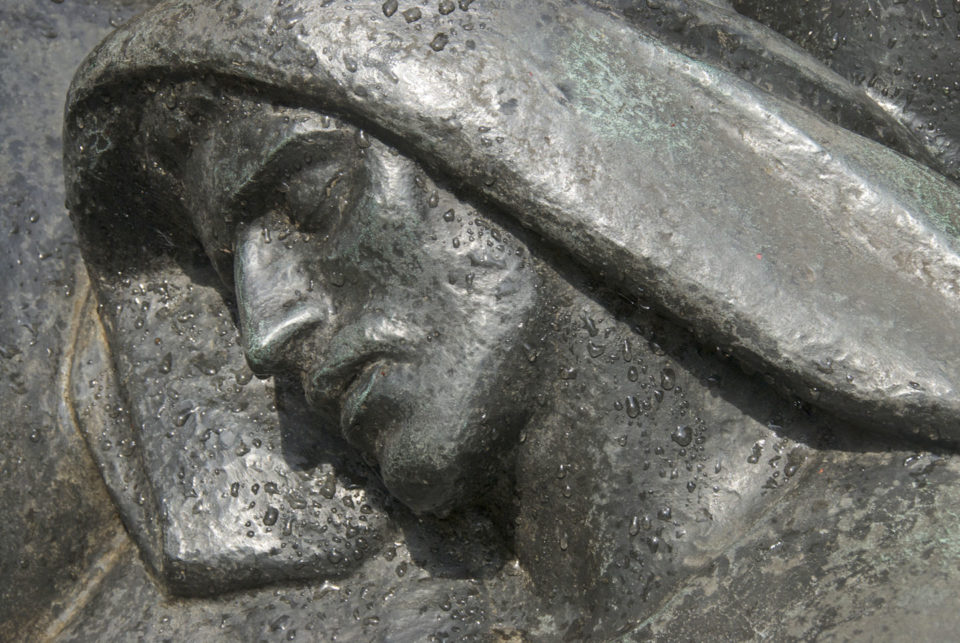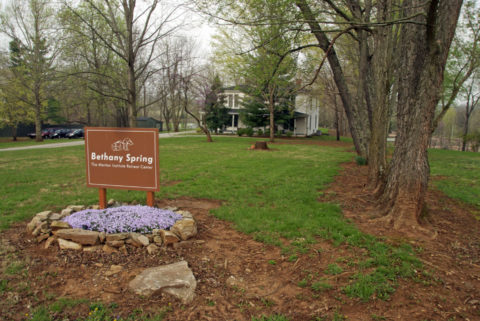 Statue at the Abbey of Gethsemani
Statue at the Abbey of Gethsemani
Thomas Merton was a Trappist monk, a prolific author, a lover of solitude, yet deeply connected with the world. I resonate deeply with his reverence for nature, love for photography, and openness to new ideas. He embraced the contemplative life.
Contemplation is the highest expression of man’s intellectual and spiritual life. It is that life itself, fully awake, fully active, fully aware that it is alive. It is spiritual wonder. It is spontaneous awe at the sacredness of life, of being. It is gratitude for life, for awareness, and for being. It is a vivid realization of the fact that life and being in us proceed from an invisible, transcendent and infinitely abundant source.
I don’t have any answers about God and prefer to live in the questions. It’s a freeing place to be. However, I have experienced that spontaneous awe at the sacredness of life. And, I’m grateful for life, for awareness, for being. I sense that there is an underlying ground that connects us all.
Thomas Merton had questions too. But, he experienced that invisible connection at the corner of 4th and Walnut in Louisville, Kentucky. This is a story that has become Merton legend.
I was suddenly overwhelmed with the realization that I loved all those people, that they were mine and I theirs, that we could not be alien to one another even though we were total strangers. It was like waking from a dream of separateness, of spurious self-isolation in a special world, the world of renunciation and supposed holiness. The whole illusion of a separate holy existence is a dream. There is no way of telling people that they are all walking around shining like the sun,
Walking in the Footsteps of Merton
I’ve had the good fortune to attend and facilitate workshops at Bethany Spring in Kentucky, near the Abbey of Gethsemani, where Merton lived. I was first there on a retreat about the sacred poetry of Thomas Merton and Mary Oliver.
 Through the poetry of Mary Oliver and Thomas Merton and the insights of my fellow participants, I reconfirmed the importance of honouring my own experience. And, I rediscovered the importance of staying true to the unique code inside of each person.
Through the poetry of Mary Oliver and Thomas Merton and the insights of my fellow participants, I reconfirmed the importance of honouring my own experience. And, I rediscovered the importance of staying true to the unique code inside of each person.
Through Brother Paul Quenon (who was a novice under Merton), I saw the grace and dignity of life as a monk. He explained the difference between reflection and contemplation. While reflection is about thought and remembering, contemplation has nothing to do with thought. It is a stillness, an awareness of the moment, a long, loving look at what’s right in front of us.
On December 10, 1968 Thomas Merton died in Bangkok. He gave his last lecture that day at a conference on East-West dialogue saying,
“My dear brothers, we are already one. But we imagine that we are not. And what we have to recover is our original unity. What we have to be is what we already are.”
Merton was the master of attention and the contemplative life.
** Books mentioned have Amazon affiliate links, meaning I make a few cents if you purchase through my link. I only recommend books that I’ve read.
Related Reading
Kim,
It’s great to be here, to “meet” you, and to read these wonderful words from this beautiful visit.
I love that last line from Thomas Merton that you ended with – we truly are one…
Thank you, Lance. It’s nice to meet you too. Looks like you are honoring your code in the jungle of life.
Kim, So good to meet you this weekend. Your writing on this blog and your photos are beautiful. I hope to have the pleasure of seeing more of your work.
I have read and reread all of Merton’s books and these books continue to renew my spirit. He is truly a contemplative.